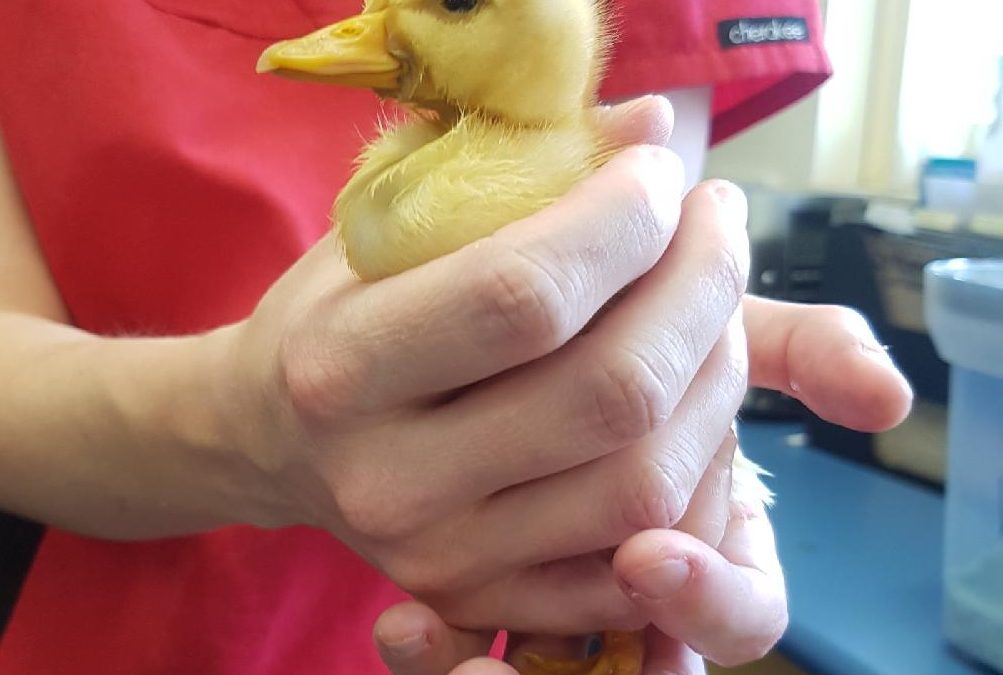What to do when… you find one of these little cuties!
Yes! Spring is in the air & new life is all around… and sometimes it also gets lost or separated from its mother!
It is the time of year when we often receive calls from concerned people who have found separated or orphaned clutches or individual ducklings. So here are some quick tips on what you can do if you are concerned about ducks or ducklings in your neighbourhood…
If you have been observing a clutch of ducklings that appears to have been separated from their morther for some time, the best thing to do is to contact ACT Wildlife (0432 300 033). This wonderful organisation has specially trained wildlife carers that are skilled in the area of rescuing and rehabilitating sick, injured or abandoned native fauna and they will be able to assist in their rescue.
If you have found a single or small clutch of ducklings and are able to safely catch them, you can of course take the to your local veterinarian (or us afterhours! We love them!) and they will be checked for any injuries before a Wildlife carer is contacted.
Here are some tips for looking after them while you wait for a carer or are transporting them to your local veterinarian:
– The most important thing to remember with ducklings is that they must be raised with the intention of releasing them into the wild. The biggest hurdle towards this is that they imprint very quickly, so even though they are adorable (!), please handle them as little as possible.
– Ducklings in care should not have water to swim in. They do not have water proofing on their feathers and these will become saturated if they get wet and the ducklings will die from hypothermia.
– Provide them with just a small enough amount of water to drink (a shallow lid or container is perfect). Ducklings must drink while they eat or eat wet food.
– Please do not feed them bread or human food! The best thing to do is to contact a Wildlife Carer or take them to your veterinarian immediately. If necessary, they can be fed duck or chick starter mix.
– Ducklings need warmth (they usually hide under their parent’s wings) so a hot water bottle or heat lamp/ source is ideal.
– Ducklings can jump and scramble surprising heights! A deep container or cardboard box lined with newspaper is perfect to transport them in temporarily.
Thank you for caring for our Wildlife & please remember to never hesitate when calling about or bringing them into us – we love them equally and feel very privileged to be able to care for our native fauna as we do the furred, feathered and scaled members of your family.

